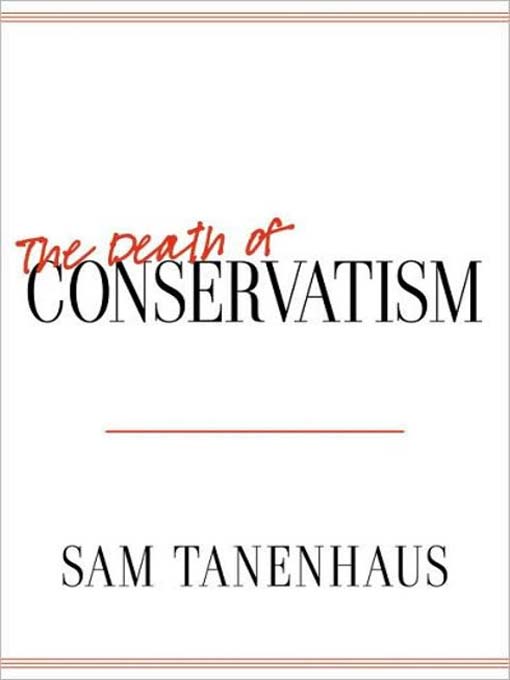
The Death of Conservatism
کتاب های مرتبط
- اطلاعات
- نقد و بررسی
- دیدگاه کاربران
نقد و بررسی

July 6, 2009
The arguments are more surprising than the conclusions in this slender book that simultaneously celebrates and mourns the end of the harshly ideological strain of conservatism that reached full flower during the presidency of George W. Bush. Tracing the movement's intellectual history from Edmund Burke to Rush Limbaugh, Tanenhaus (Whitaker Chambers
), editor of the New York Times Book Review
, argues that the “contemporary Right define itself less by what it yearns to conserve than by what it longs to destroy”—and that pragmatic Democrats like Bill Clinton and Barack Obama have usurped the Republicans' once winning focus on social stability. Tanenhaus argues that Republicans must moderate their focus on ideological purity if they are to return from the political wilderness and offers trenchant criticism of the liberal excesses that previously led to a long Democratic exile from the White House. Tanenhaus's positions are not entirely consistent, however; he aligns Nixon with George W. Bush and his destructively “revanchist course” before praising Nixon's “prodigious gifts” and “sheer intellectual ability.” But the author recognizes the need for two strong parties to compete in American politics, and his impeccably well-written book insightfully summarizes the highs and lows of American conservatism over the decades.

August 31, 2009
Tanenhaus' capsule history of American conservatism begins with a nostalgic review of the movement's intellectual forefathers-Edmund Burke to William F. Buckley-and culminates in an analysis of its run off the rails during the George W. Bush administration, when the ideas-driven conservatism of the postwar era was obliterated by a generation of ideological lockstep and inept governance. Alan Sklar's capable and smooth reading gets the material across but is marked by the occasional jarring misnomer (it is William F., not William E., Buckley). Nevertheless, he ably renders dry political battles of the past as high intellectual drama. A Random hardcover (Reviews, Jul. 6).

























دیدگاه کاربران